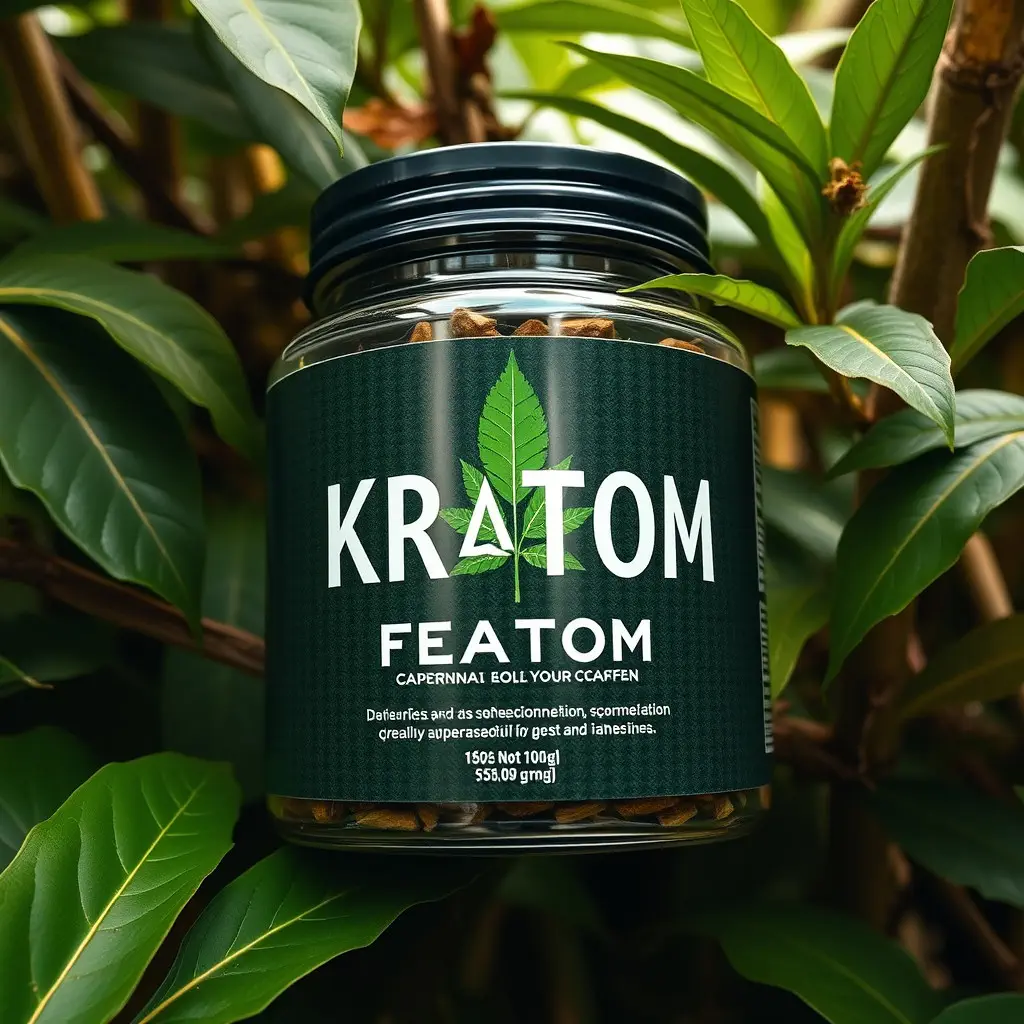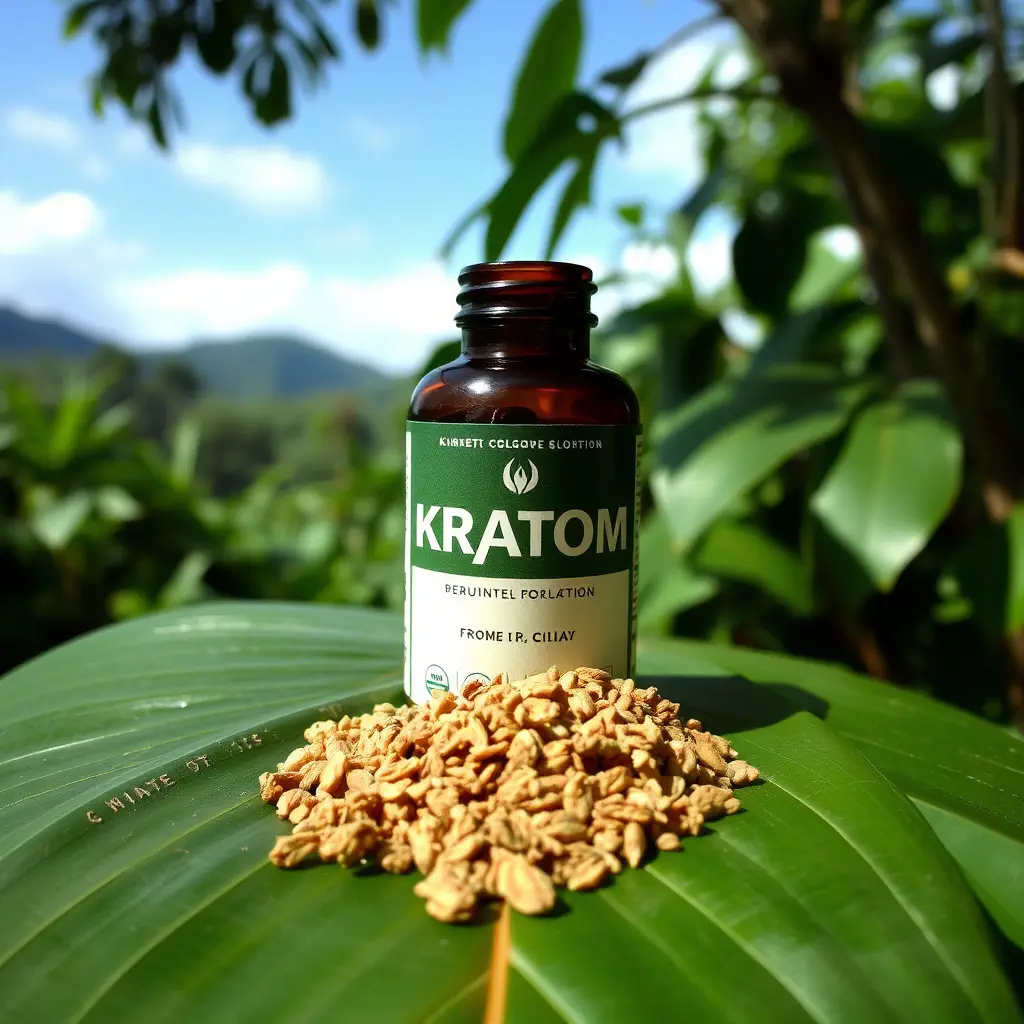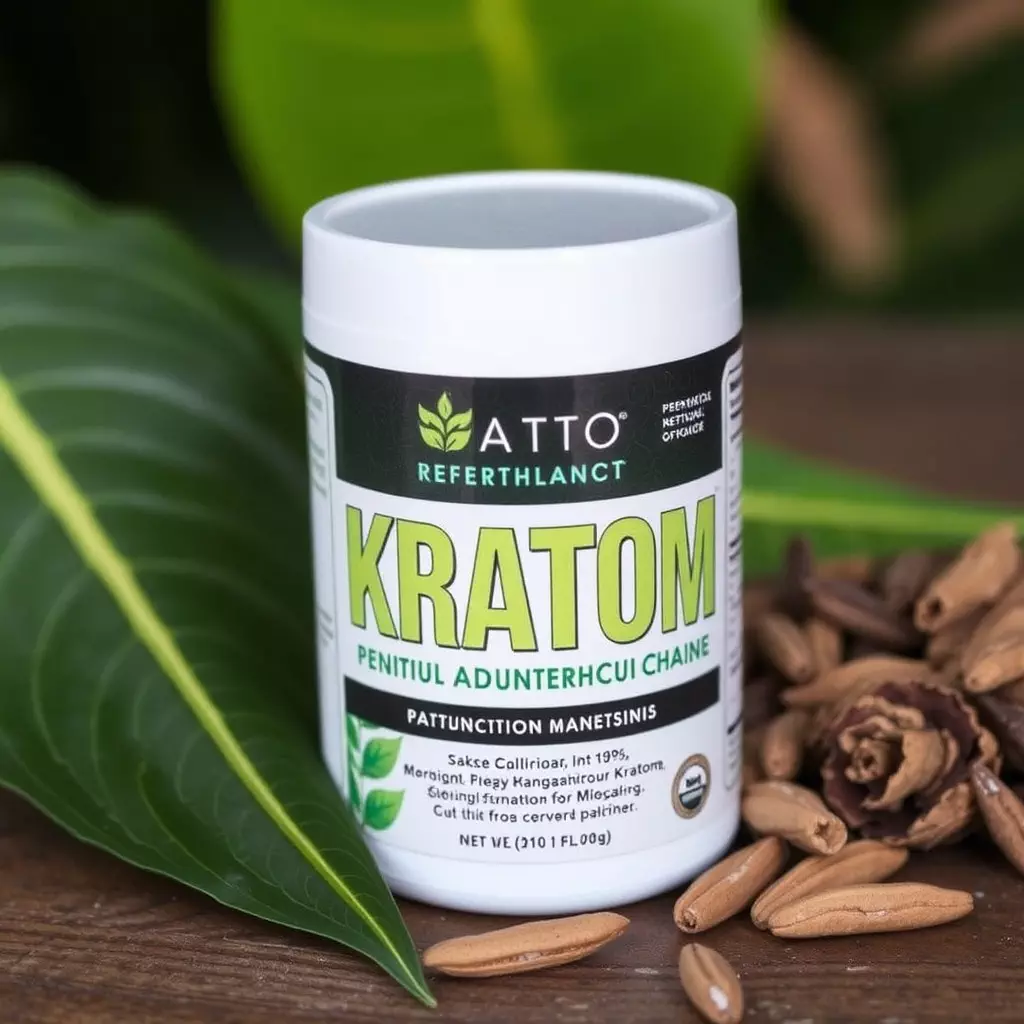Kratom, a natural extract from Southeast Asia's Mitragyna speciosa tree, has garnered attention for its potential role in enhancing sports performance through cognitive benefits. Its active alkaloids, mitragynine and 7-hydroxymitragynine, may improve mental clarity, focus, and endurance in athletes by influencing neurotransmitter levels, thereby aiding concentration and sustained effort. To utilize kratom effectively within sports nutrition, precise dosing and optimal timing are crucial to avoid negative performance impacts. Athletes should be well-informed about the legal status of kratom in their sport, as it is subject to various regulations by governing bodies like WADA. Safety and compliance are paramount; thus, consulting with healthcare professionals is recommended before integrating kratom into a sports nutrition plan. Ongoing research is needed to fully understand kratom's efficacy and safety for athletes, who must also consider the potential for drug test positives due to opioid test panel cross-reactivity. Athletes should proceed with caution, mindful of personal sensitivity, tolerance development, and interactions with other substances. Regular monitoring and professional medical guidance are essential to ensure that any use of kratom aligns with health standards and adheres to the specific rules of their sport.
Exploring the intersection of natural supplements and sports performance, this article delves into the emerging role of kratom in enhancing mental clarity and focus for athletes. Known for its potential effects on mood and concentration, kratom’s inclusion within sports nutrition merits careful examination. We will navigate how this botanical can strategically complement an athlete’s diet to sharpen cognitive function, improve training regimens, and aid in the pursuit of peak performance. Acknowledging the importance of safe usage, we provide clear guidelines and considerations to ensure athletes utilize kratom responsibly within their fitness routines. Join us as we shed light on this intriguing addition to sports nutrition.
- Enhancing Athletic Performance: The Role of Kratom in Sports Nutrition
- Strategic Integration of Kratom into Athletes' Diets for Optimal Focus and Clarity
- Safe Usage Guidelines and Considerations for Athletes Utilizing Kratom as Part of Their Regimen
Enhancing Athletic Performance: The Role of Kratom in Sports Nutrition

Kratom, a tropical evergreen tree native to Southeast Asia, has garnered attention within the realm of sports nutrition for its potential impact on athletic performance. Its leaves contain alkaloids that may offer both physical and cognitive benefits to athletes seeking to enhance their training and competition outcomes. When ingested, kratom can influence an athlete’s mental clarity and focus, which are crucial aspects of peak performance. By modulating the brain’s neurotransmitters, kratom can help athletes maintain concentration during prolonged activities and increase their mental endurance. This, in turn, supports sustained effort and can lead to improved athletic outcomes.
Incorporating kratom into a sports nutrition plan involves careful consideration of the dosage and timing to avoid any performance-hindering effects. The alkaloids found in kratom, such as mitragynine and 7-hydroxymitragynine, can affect mood and energy levels, potentially providing athletes with a heightened sense of well-being and motivation. However, it’s essential for athletes to adhere to the regulations set forth by their sport’s governing body regarding the use of such substances. Proper guidance from a healthcare professional is recommended when integrating kratom into sports nutrition strategies to ensure its safe and effective use for performance enhancement.
Strategic Integration of Kratom into Athletes' Diets for Optimal Focus and Clarity
Incorporating kratom into sports nutrition regimens can be a strategic move for athletes seeking enhanced focus and mental clarity. Kratom, derived from the leaves of the Mitragyna speciosa tree, has been studied for its potential nootropic effects. When consumed responsibly, it may offer cognitive benefits that could sharpen an athlete’s concentration during training and competitions. The alkaloids present in kratom, such as mitraphylline and 7-hydroxymitragynine, are believed to influence the brain’s opioid receptors, which can contribute to improved mental performance. Athletes looking to integrate kratom into their diets should consider the timing of ingestion to align with peak performance periods. Proper dosing and understanding the strain’s effects—whether red, green, or white vein varieties—are crucial for achieving the desired cognitive state without impairment or negative side effects.
It’s imperative for athletes to consult with healthcare professionals before adding kratom to their sports nutrition plan. This step ensures safety and efficacy, tailoring the use of kratom to the individual’s unique physiology and performance needs. Additionally, adhering to the regulations set forth by sporting organizations, such as the World Anti-Doping Agency (WADA), is essential to avoid any potential violations of substance abuse policies. With careful consideration and professional guidance, kratom can be a valuable addition to sports nutrition, offering athletes a natural means to enhance their mental clarity and focus, which are pivotal for peak athletic performance.
Safe Usage Guidelines and Considerations for Athletes Utilizing Kratom as Part of Their Regimen

When incorporating kratom into a sports nutrition regimen, athletes must adhere to strict usage guidelines to ensure safety and legality. Kratom, derived from the leaves of Mitragyna speciosa, can offer potential cognitive-enhancing benefits, which may aid in mental clarity and focus. However, its use is regulated in many countries and is subject to legal restrictions; thus, athletes should first verify the status of kratom in their jurisdiction. Safe usage involves careful dosing, as kratom’s effects are dose-dependent and can range from stimulating to sedative. Athletes should start with a low dose to gauge individual sensitivity before considering any increase. Consistency is key; regular use may lead to tolerance, necessitating adjustments in dosage. It’s imperative to monitor personal response, as kratom can interact with other substances, including prescription medications and common supplements within sports nutrition. Additionally, the timing of kratom intake should be considered, as its effects can last several hours and may impact performance or interfere with sleep. Athletes must also consider the potential for positive drug tests, as some kratom compounds might cross-react with opioid test panels. Regular health check-ups are recommended to ensure that kratom use does not conflict with an athlete’s overall well-being or compliance with sports governing body regulations. Safety, legality, and personalized dosing are paramount when kratom is part of a sports nutrition strategy, and athletes should approach its use with caution and informed guidance from healthcare professionals.
Incorporating kratom into sports nutrition can significantly enhance an athlete’s focus and mental clarity, as detailed in this exploration of its role within athletic performance optimization. Strategic dietary planning that includes kratom has the potential to elevate athletes’ cognitive performance, enabling them to maintain sharp focus and clear thinking during rigorous training and competition. However, it is crucial for athletes to adhere to safe usage guidelines tailored to their individual health profiles and the specific demands of their sport. By understanding and implementing these considerations, athletes can leverage kratom’s benefits while minimizing potential risks, thereby contributing to a well-rounded approach in their sports nutrition regimen. As such, kratom may emerge as a valuable tool for those seeking to fine-tune their mental acuity alongside their physical prowess in the realm of athletic competition.






